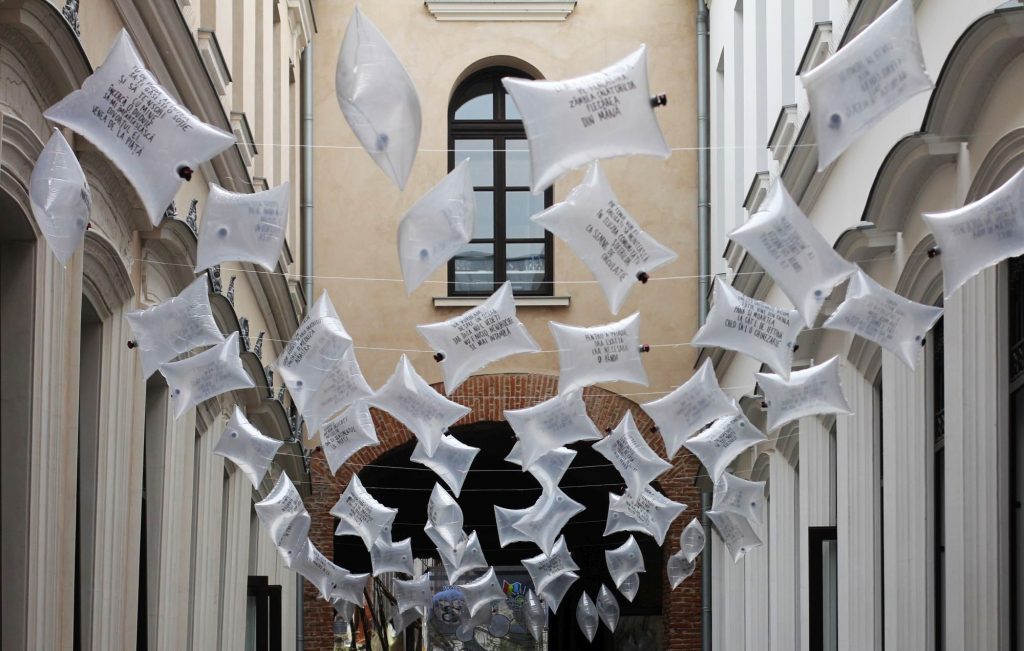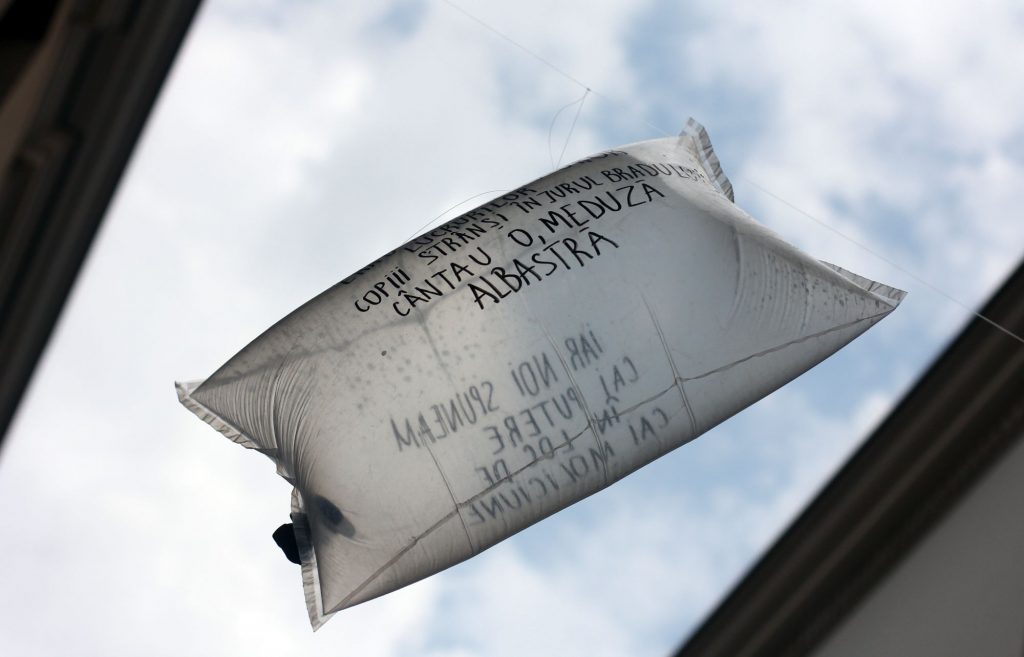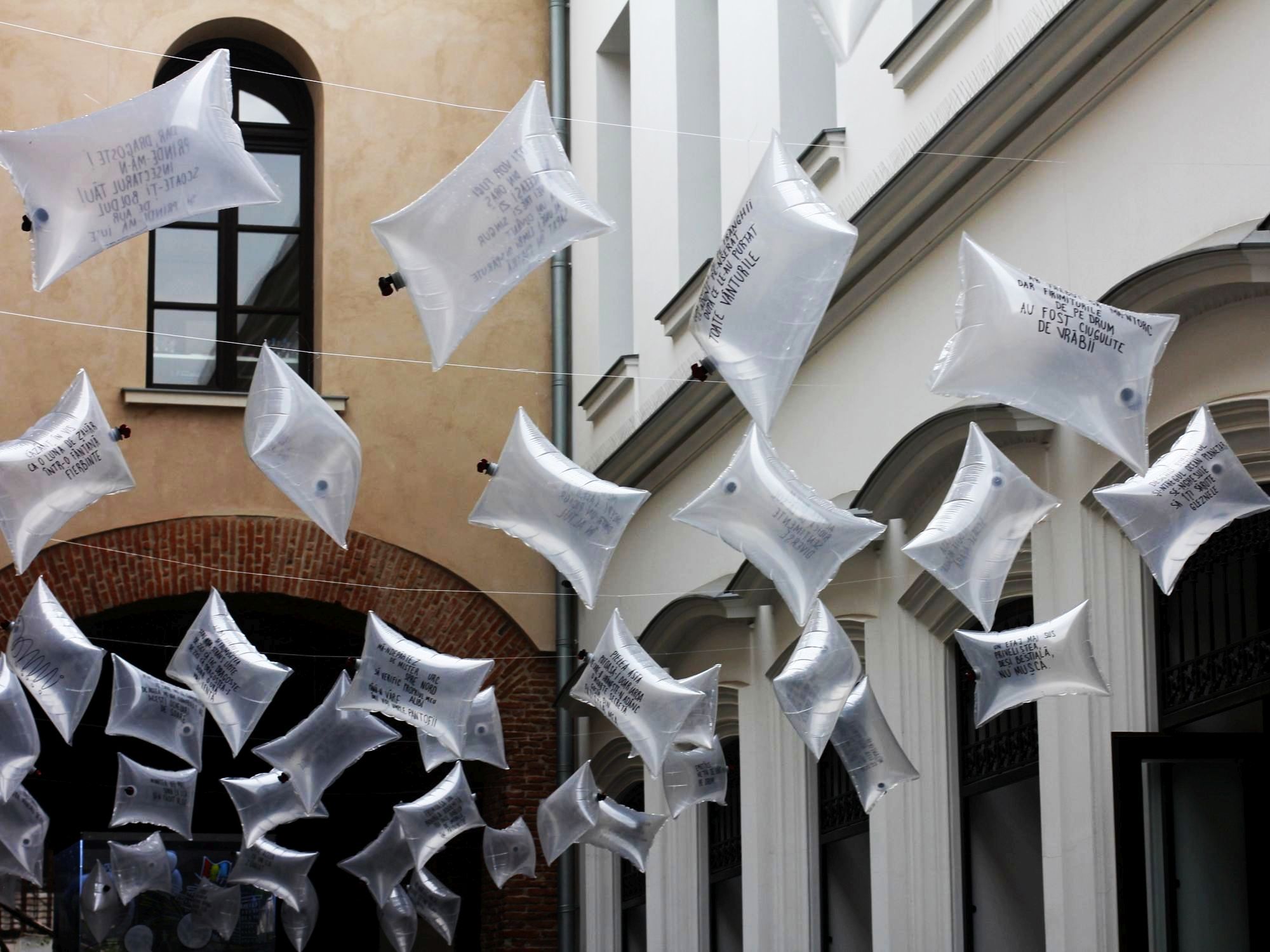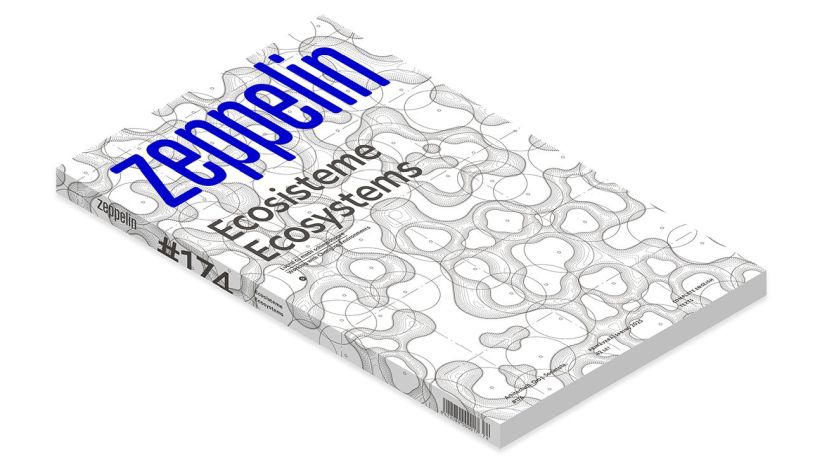Text, photo: Mugur Grosu
A story told by Witold Gombrowicz pops into my mind occasionally: if you see a crab overturned on the beach, shaking its legs, unable to turn by itself, you will probably feel sorry that it might die if you left it like that, you will bend and you will put on back on its feet. But what if you noticed then that the beach is in fact full of crabs overturned by the storm, what do you think you might do? How many times will you bend, and how many will you try to save on the endless beach, until you will tell yourself that it is not your job, after all?
Do not expect to find next some great parable or a univer¬sal solution. The premise is quite mediocre, the facts dull, and the victory—a soap bubble. But how beautifully it shined in the sun!
Some time ago, in old Zeppelin headquarters, we had a water cooler. The supplier periodically collected the empty bottles, bringing full ones instead. Until they changed that dispenser with a mini-watercooler with spring water from Talmaciu, Sibiu County. Directly from the heart of nature, so to speak. The water now came in cartons, smaller and easier to store, and we were all happy that we were no longer stumbling over the empty plastic bottles. That lasted a while. In the meantime, the empty cartons began to pile up, because the supplier never collected them, since it was more time and cost efficient that way, without all the transportation, while the whole issue of the packaging, which was no longer being recycled, was now our own problem. We couldn’t just throw them away, but we also could not wait for a solution to drop from the sky. Especially since they had started dropping on our heads, after a while, when they piled all the way up to the ceiling. I decided to step up and one evening I started to disassemble the boxes. The spring water was packed as a ‘bag in box’ container, that is, a plastic pouch in a cardboard box, so I made two stacks: one for the folded and pressed cardboard boxes, the other for the drained and flattened bags, a job that lasted a good part of the night. I repeated this process periodically, revolted about the waste, unthinkable for an organization and magazine where green and ecology are not just buzz words. When you see the huge stacks of waste that grow behind the most common daily necessity – water consumption – it’s horrifying.
For the cardboard boxes we found a recycling company that helped us get rid of the cubic meters that kept piling up. However, they asked to be called back only if we wanted to throw away some magazines (god forbid!), since the cardboard took up a lot of volume but it was light, so it didn’t justify the transport costs. The bags’ situation was even more complicated, they occupied a lot of space and weighed like a feather. But if you inflated them, they were like beach pillows, so much could be done with them! I gathered them, enthusiastically, in sacks, and stashed them in a closet and began to spin ideas of artistic recycling. The first sack, fatality!, ended up in the garbage due to a communication error with the janitor. I went bonkers, but I did not abandon it, and for two years I kept filling the office with boxes scribbled with threatening messages. An office alread filled, on a whole different scale, by our colleague, Justin Baroncea was also collecting bits and scraps from all over the city, planning to upcycle them as design objects.
Finally, the mad house closed because the editorial staff moved to a new ecological headquarters—the Concrete House, the wonderful project of Bogdan Gyemant-Selin. It was about that time when I was invited to do something at Arcub for the event “Bucharest—In-visible City”, and, with lightning speed, I made a poetic installation: I puffed up the cushions, wrote verses all over them and suspended them in the alley between the streets Lipscani and Gabroveni.

It was harder when I had to present my installation to the European officials who were evaluating the city’s candidacy for the title of European Capital of Culture. Oopsy. I told them that they are called Pillow Bucharest (apud Peter Greenaway—Pillow Book) and “staged” one thing forsaken both in the center of the city—which never sleeps—and in the so-called bedroom neighbourhoods: poetry. Or, to conclude with a joke: look, these pouches, destined to end up in the garbage dump, now raise poetry to the skies. After floating up there for several weeks, the installation was re-recycled: at the request of a manager with zero budget for redecoration, it was donated to a restaurant in Vitan neighbourhood. And to round up: I hope they don’t serve crabs there.

apparently these were the names of all things
children around the Christmas-tree were singing O tannenblue medusa
and we were saying horsepower instead of horseweakness


